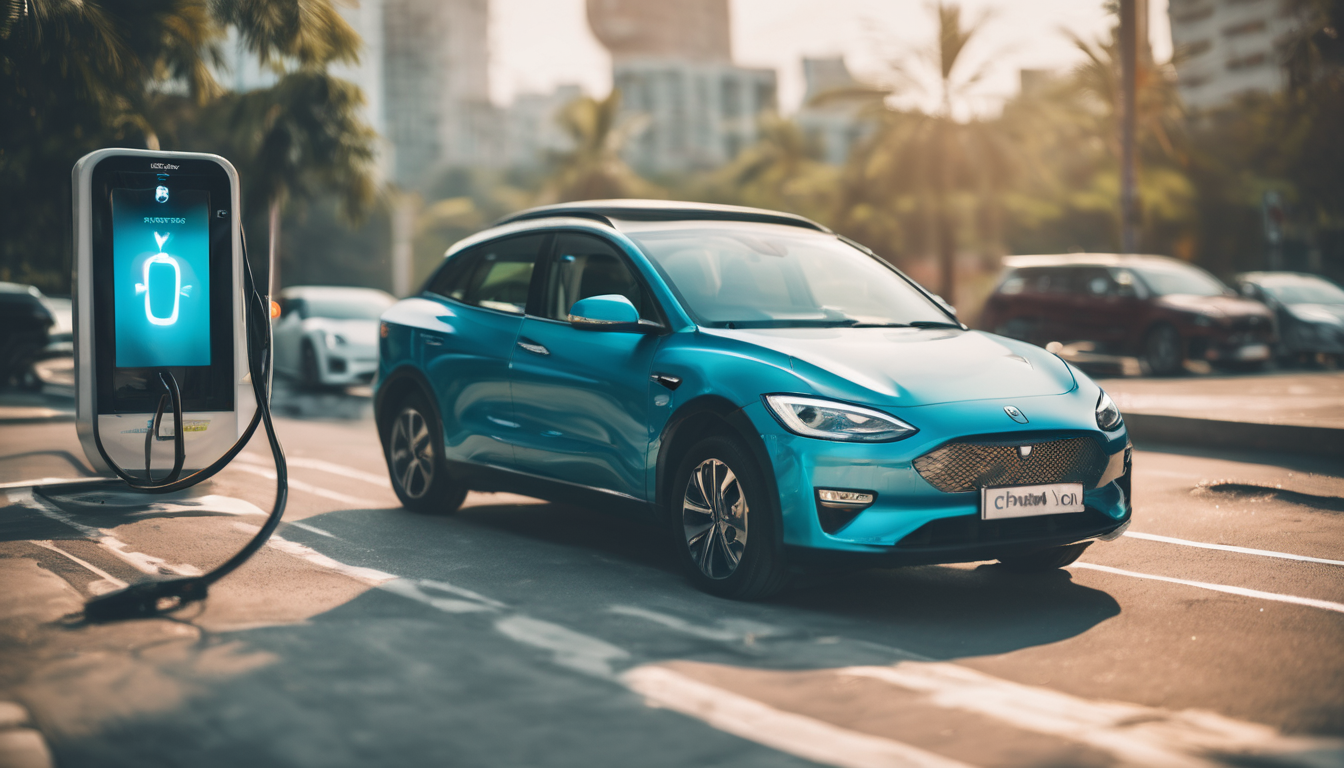An electric car, also known as an electric vehicle (EV), is a vehicle that runs on electric power rather than gasoline or diesel fuel. It uses a battery-powered electric motor to provide propulsion and has no tailpipe emissions. In this article, we will discuss the benefits of electric cars and their potential impact on the environment.
One of the primary benefits of electric cars is their environmental friendliness. Electric cars produce zero tailpipe emissions, which means that they do not emit harmful pollutants such as carbon monoxide, nitrogen oxides, or particulate matter. This makes them a cleaner alternative to traditional gasoline-powered cars and helps to reduce air pollution, which is a major contributor to climate change.
Another advantage of electric cars is their lower operating costs. While the initial purchase price of an electric car can be higher than that of a gasoline-powered car, electric cars have lower running costs over their lifetime. Electricity is cheaper than gasoline, so charging an electric car costs less than filling up a gasoline car. Additionally, electric cars require less maintenance because they have fewer moving parts than traditional cars. This means that they are less likely to break down and require fewer repairs.
Electric cars also offer a more comfortable driving experience. Electric motors provide instant torque, which means that electric cars can accelerate quickly and smoothly. Additionally, electric cars are typically quieter than gasoline-powered cars because they do not have an engine that produces noise and vibration. This makes for a more relaxing and enjoyable driving experience.
Finally, electric cars are becoming more accessible and convenient for consumers. There are now more charging stations available than ever before, and the range of electric cars is increasing. This means that drivers can travel longer distances without having to worry about running out of battery power. Additionally, governments are offering incentives for purchasing electric cars, such as tax credits and rebates, which can help to offset the higher initial purchase price.
Despite these benefits, there are still some challenges that electric cars face. One of the biggest challenges is the limited range of most electric cars. While the range of electric cars is improving, it can still be a limiting factor for drivers who need to travel long distances. Additionally, charging infrastructure is not yet as widespread as gasoline stations, which means that it can be difficult to find a charging station when you need one.
In conclusion, electric cars have numerous benefits that make them an attractive alternative to traditional gasoline-powered cars. They are environmentally friendly, offer lower operating costs, provide a more comfortable driving experience, and are becoming more accessible and convenient for consumers. As technology continues to improve and more charging infrastructure is built, electric cars are likely to become an increasingly common sight on our roads.






